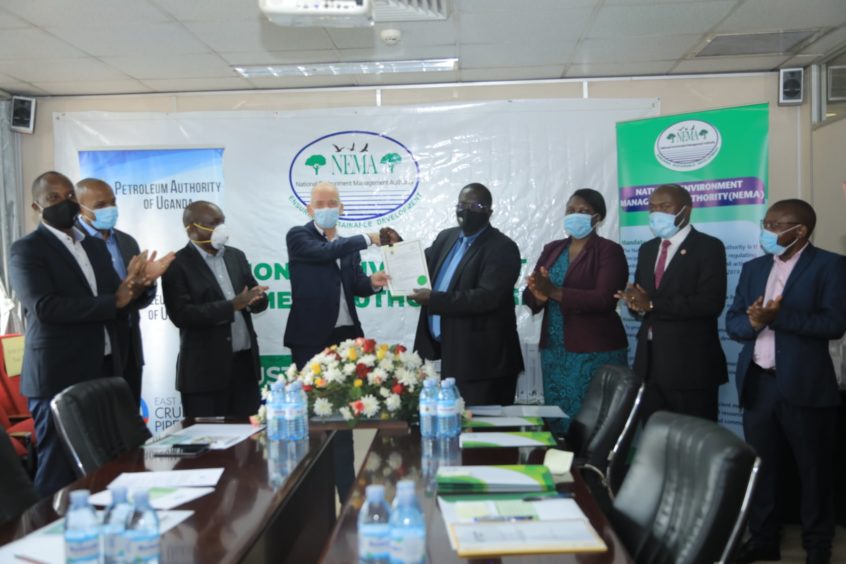
Uganda’s National Environment Management Authority (NEMA) has approved Total East Africa Midstream’s (TEAM) environmental report on the Ugandan part of the East African Crude Oil Pipeline (EACOP).
Tanzania gave approval to the environment and social impact assessment (ESIA) study on the Tanzanian section in November 2019.
The pipeline will run from Kabaale to Chongoleani, in Tanzania’s port of Tanga. Reporting the approval, the Petroleum Authority of Uganda (PAU) said this would see oil from Lake Albert be exported to international markets.
TEAM carried out ESIAs on the EACOP in 2017-18, the Ugandan authorities said. These covered physical, biological and social baseline data, in addition to stakeholder engagement, the statement said.
Duty of vigilance
The ESIA process has not been without controversy. Amis de la Terre – Friends of the Earth France – and another NGO, Survie, released a report in English today critical of Total’s work in Uganda and Tanzania.
The report, “A nightmare named Total”, described the ESIAs as “clearly flawed”, in terms of process and content. The EACOP studies did not identify or make plans to mitigate risks and impacts.
Furthermore, it said, there had been no public consultation in Tanzania for the ESIA process. Tanzanian law does not require these.
The two NGOs went on to note that Total had not included a waste management plan in the ESIA. The company plans to do this at a later date. Burning or burying waste would cause either air pollution or soil contamination, the report said.
The ESIAs considered the risk of oil spills to be low risk. An assessment of the works by E-Tech, commissioned by Amis de la Terre and Survie, expressed concerns on potential spills.
Finally, the ESIA does not include the indirect greenhouse gas emissions from oil transported via the EACOP. The NGOs said this would result in the emission of 34.3 million tonnes per year of CO2 between 2025 and 2029.
The French court of appeal is in the process of hearing a case against Total on its plans in Uganda and Tanzania. The NGOs expect a ruling on December 10.
The case focuses on the “duty of vigilance”. This is a 2017 law that aims to hold corporations liable for activities throughout the world.
The NGOs have said that Total’s work on the Lake Albert development plan and pipeline will have an impact on 100,000 people.
